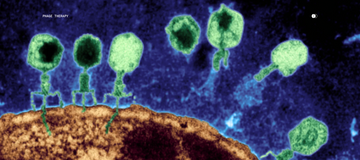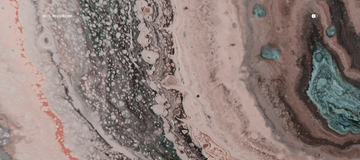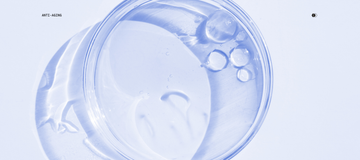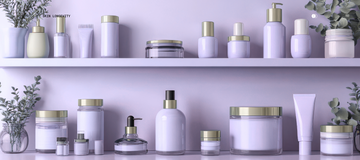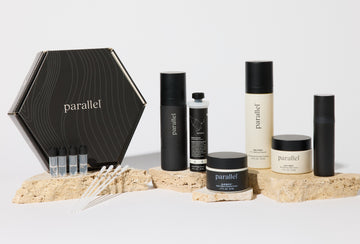When More is Less: How Excessive Skincare Routines Age Your Skin
by Parallel Health Team
Your bathroom cabinet overflows with serums, toners, acids, and treatments—each promising radiant skin. But what if the very products meant to improve your complexion are actually working against you? Emerging research reveals a troubling paradox: the more skincare products we use, the more likely we are to disrupt our skin's delicate microbial ecosystem.
The Hidden World of Your Skin Microbiome
Your skin is home to trillions of microorganisms—bacteria, fungi, viruses, and other microbes—that form a complex ecosystem known as the skin microbiome. This invisible community acts as your first line of defense, maintaining barrier function, regulating immune responses, and protecting against harmful pathogens. When balanced, these microscopic allies keep your skin healthy, hydrated, resilient, and looking youthful.
However, this delicate ecosystem can be easily disrupted, leading to a condition called dysbiosis—an imbalance where harmful microbes outnumber beneficial ones. Recent scientific evidence suggests that our well-intentioned skincare routines may be contributing to this problem more than we realize.
The Science Behind Skincare-Induced Dysbiosis
A groundbreaking 2019 study published in BMC Biology revealed that compounds from beauty products persist on the skin for weeks following their use, suggesting a long-term contribution to the chemical environment where skin microbes live. The research found that specific compounds from beauty products used before the study remain detectable with half-lives of 0.5–1.9 weeks, demonstrating just how profoundly our products alter the skin's chemical landscape.
Even more concerning, a comprehensive 2024 review in Heliyon noted that over the past 5–10 years, there has been a significant rise in skin damage rates, with researchers identifying the increased usage of synthetic chemical components in modern-day cosmetics as the primary culprit posing a significant threat. The study emphasized that the imbalance can often be traced back to excessive product usage.
Research consistently shows that skincare products create highly individualized responses in the microbiome. As documented in the BMC Biology study, personal care product effects last for weeks and produce highly individualized responses, including alterations in steroid and pheromone levels and in bacterial and archaeal ecosystem structure and dynamics.
The Multi-Step Trap
The beauty industry has conditioned us to believe that more steps equal better results. Ten-step Korean skincare routines, elaborate morning and evening regimens, and constant multi-product layering have become the norm. Yet research suggests this approach may be counterproductive.
A 2024 study in Frontiers in Medicine examining skincare products with prebiotics and postbiotics found that even beneficial interventions must be carefully balanced. The research showed that skin hydration significantly increased in both groups when comparing different formulations, but emphasized the importance of targeted, rather than excessive, application of active ingredients.
Multiple studies have demonstrated that an overuse of skin care products could disrupt our skin membrane integrity and that excessive cleansing with harsh cleansers can disrupt the skin microbiome making the condition even worse, while accelerating skin age.
What Parallel Health's Data Reveals
At Parallel Health, our extensive microbiome analysis database supports these published findings. Through thousands of patient assessments, we've observed a clear pattern: the most severe cases of skin microbiome dysbiosis often occur in individuals using 6+ skincare products daily or those with a history of harsh, chronic prescription medication or antibiotic use.
Our AI-powered microbiome analysis reveals that patients with complex, multi-step routines frequently show:
- Reduced microbial diversity
- Increased opportunistic pathogen populations
- Compromised barrier function markers
- Elevated inflammatory responses
This data aligns with published research showing that dysbiosis and alterations in microbial metabolites are characteristic of compromised skin health.
You're Unique. Your Skincare Should Be, Too.
The solution isn't to abandon skincare entirely, but to approach it more thoughtfully. Research supports a "less is more" philosophy that prioritizes microbiome-supportive formulations and personalized approaches.
As noted by microbiome expert Dr. Nathan Brown, "Effective skincare requires intentional restraint—choosing only the gentlest, most essential ingredients for each purpose. Our research consistently shows that using multiple products at once, especially if they contain harsh actives or many preservatives, can disrupt microbial balance, making strategic minimalism more beneficial than product abundance."
Key principles for microbiome-conscious skincare include:
Quality Over Quantity: Choose fewer, high-quality products that work synergistically and are right for your skin microbiome type.
Personalized Approach: Recognize that everyone's microbiome is unique. What works for others may not work for your specific microbial ecosystem.
Gentle Formulations: Opt for pH-balanced, sulfate-free cleansers and avoid harsh antibacterial products that indiscriminately eliminate both harmful and beneficial microbes.
Strategic Timing: Allow adequate time between introducing new products to assess their impact on your skin's balance.
The Future of AI Microbiome-Informed Skincare
At Parallel Health, we believe the future of skincare lies in precision rather than excess. Our microbiome testing and analysis provide the insights needed to create truly personalized regimens that support, rather than disrupt, your skin's natural ecosystem.
By understanding your unique microbial profile, we can identify which ingredients will enhance your skin health and which ones to avoid. This targeted approach eliminates the guesswork and reduces the risk of product-induced dysbiosis.
Ready to discover what your skin microbiome needs? Parallel Health's AI Microbiome Dermatology™ testing provides personalized insights to optimize your skincare routine for your unique microbial ecosystem. Sign up for the MD-03 Phage Protocol™ and get testing alongside precision products.
References
-
Bouslimani, A., da Silva, R., Kosciolek, T., et al. The impact of skin care products on skin chemistry and microbiome dynamics. BMC Biology 17, 47 (2019).
-
Akter, S., Addya, S., Netrapalli, I.S., et al. The dynamic relationship between skin microbiomes and personal care products: A comprehensive review. Heliyon 10, e33549 (2024).
-
Haykal, T., Nasr, M., Hodroj, M.H., et al. Dermatological Health in the Light of Skin Microbiome Evolution. Journal of Cosmetic Dermatology 23, 3689-3701 (2024).
-
Dimitriu, P.A., Iker, B., Malik, K., et al. New insights into the intrinsic and extrinsic factors that shape the human skin microbiome. mBio 10, e00839-19 (2019).
-
Sfriso, R., Egert, M., Gempeler, M., et al. Revealing the secret life of skin ‐ with the microbiome you never walk alone. International Journal of Cosmetic Science 42, 116-126 (2020).
-
Polak-Witka, K., Rudnicka, L., Blume-Peytavi, U., et al. The role of the microbiome in scalp hair follicle biology and disease. Experimental Dermatology 29, 286-294 (2020).
-
Chen, L., Li, J., Zhu, W., et al. Multi-omic approach to decipher the impact of skincare products with pre/postbiotics on skin microbiome and metabolome. Frontiers in Medicine 10, 1165980 (2023).
-
Fyhrquist, N., Salava, A., Auvinen, P., et al. Treatment of atopic dermatitis with dupilumab: clinical response and changes in the skin microbiome. Experimental Dermatology 28, 1316-1319 (2019).
-
Kim, H.J., Kim, J.J., Myeong, N.R., et al. Effect of the skincare product on facial skin microbial structure and biophysical parameters: A pilot study. Journal of Cosmetic Dermatology 20, 3304-3314 (2021).
-
O'Neill, A.M., Gallo, R.L. Host-microbiome interactions and recent progress into understanding the biology of acne vulgaris. Microbiome 6, 177 (2018).







